Interview: Blueprint
Chopping it Up with Printmatic
Blueprint discusses Deleted Scenes and random adventures in counterculture.
By Mildred C. Fallen
Over the last two years, the Columbus MC, Blueprint stacked up an arsenal of new and unreleased material, especially since redirecting his focus from label executive to artist. After the critically acclaimed Adventures in Counterculture album, his first in six years, he released Deleted Scenes in late 2012. Another disc is expected to follow in early 2013.
With a laser-like focus on his own career and glad to have another chance to nurture it, Blueprint talks about how the Deleted Scenes project came about, as well as how authoring a blog led to bookwriting.
What have you been up to lately?
Even though I toured most of last year, I finished more music than ever, and I’m on the verge of finishing a lot of really good things that I feel good about. I think that’s all I’ve really been up to lately, is dedicating myself 100 percent, and starting to turn the corner as far as how I spend my time as an artist.
Like the Deleted Scenes came about because I had so much music from Adventures in Counterculture, and then I was starting on my next album but I had all those songs out there and I was like man, I’m not sure which of these I should put on my new album, because some of them are really good—or if any of them should go. And when you don’t have a lot of music, the tendency is to hold on to what you have, and so I kind of reached a point where I said, I’m afraid to let this stuff go, even though it’s really good, I don’t feel like I’m doing myself a disservice or that I won’t be able to come up with anything else. So that was the idea behind Deleted Scenes, the confidence that the music I’m releasing right after that is even a couple of steps ahead of that.
Speaking of Deleted Scenes; is it kind of like a spin-off (of Adventures in Counterculture) or is it completely just in its own vein? Like how did you even come up with deciding to call it ‘Deleted Scenes?’
I thought that I had all this music that was kind of disconnected and I had this body of work that was Adventures in Counterculture and that other body of music didn’t make any sense. But then as I started putting together songs, putting songs back to back, I started noticing themes in it. I noticed that all the music that didn’t fit on AIC actually fit together really well. And so, it was just a different vibe. At the time I was putting together AIC it was very serious, but it was very much like social commentary as well. But Deleted Scenes takes a step away from social commentary and it more like speaks of uplifting things, like there’s a track, “American Dream,” there’s a track, “Get Right;” there’s a lot of tracks that are more about you getting yourself together personally than there are about the state of what’s going on in the world today. And I think that’s the theme that kind of puts Deleted Scenes together. The title, I got just from watching a lot of movies and how whenever you watch the deleted scenes of a DVD or a movie that you really like, you always see these scenes and you always go, ‘Man they should’ve put that in there!’ You always have that feeling, ‘Man that was an awesome scene—why didn’t they put that in there?’ You don’t know why the director made the call at the time, and you still love the movie, but when you see the deleted scenes, you get a whole different view of that movie and you appreciate it more. And so I wanted to take that concept from theatre and move it over into music where I give the people almost enough to where it could make a movie in itself. Instead of having three or four scenes that you wonder why they weren’t there, my “deleted scenes” is an entire album that is kind of a version of that.
I noticed in the last two years that you’ve been blogging, and I also noticed how social you are in your blog. It seems like it gives you an opportunity to connect directly with your fans, so I was kind of wondering, has blogging helped your career? Why did you start blogging, and do you like the social aspect?
I’d say it’s definitely helped. Obviously, it’s not for everybody, like every artist isn’t able to write an interesting blog. And I think I started blogging when I was still going out kicking it and my topics were more, you know, I would come home from a weird drunk night and blog. I just kind of felt the need to express. I’m a fan of blogs and I knew there had to be a way to do that in Hip Hop. If guys are blogging about financial stuff and making it interesting, then why can’t I blog about the topics that I talk about on record or being an artist and make that interesting? So around 2009, 2010, I started blogging, and this girl hit me up; she has a really big blog and hers is dedicated to fashion. She was like, ‘Hey, I read the first few things you blogged about. If you’re serious, you can actually find a way to sustain and build your career by blogging and you’ll get opportunities from blogging and writing that you never had.’ So I started picking her brain and seeing what she was doing and I got a lot of advice from her. I have a lot of other friends who are really into WordPress and blogging. Because my background is in computer science, I kind of have a natural thing where I’m automatically interested in that aspect of it, and that is kind of what got me into blogging back in 2009. I was like ‘Right now, I just want to write, and I want to become a better writer.’ I’m sure you’ve seen from things that are posted on websites, you know just by the number of clicks, number of reposts, the responses and the comments, it’s immediate feedback and so you know which topics are really hitting home, which ones are not, and you get to look at your writing in a formal way, because once you post it, you can’t take it back, really. That made me a better writer and (helped me) understand who my fans were and what they wanted to see. Blogging led me to writing a book that I wrote called Adventures in Counterculture which was really encouraging and I’m glad I wrote that. Now I’ve got another book, Word is Blog, which comes free with one of the albums and I sell it at shows. The blogging has kind of opened up book writing, and book writing is something people actually care about because there are not really many rappers writing books. There’s definitely an interest there.
The Adventures in Counterculture book—can you give me an example of things you talked about in the book?
When I wrote it, I wrote it with the intention of writing about the songwriting process of the album. As I was writing about every song, I realized that every song tied into something I was going through at the time. Indirectly, I was writing about the history of my evolvement in the music scene, my evolvement with Weightless, my evolvement as an artist, my evolvement with the label. I didn’t set out to do that but all of those things came out. They were inseparable; that’s what I found out. You can’t just say, ‘This is what inspired me to make a song’ and not truly get into it. An example of that, there’s this chapter about a song called “The Clouds.” And it starts off talking about how I used to go to the airport whenever I felt stuck, and I would hang out at the post office at the airport because from there you could see the airplanes taking off and landing from maybe 300, 400 yards away, like really close. And so I would go there after I mailed my packages to people who ordered stuff from my site, and just go hang out and write. I talk about that and I talk about how in a year period, Camu Tao had passed away, DJ Przm had passed away (Columbus Hip Hop icons) and my old business partner at Weightless had kind of betrayed us. I wrote about those things, and people would always ask me, ‘What are some of the things that you’re referencing?’ There’s a line in that song that says, ‘We lost three Columbus icons within a year, so I ain’t about to make the same record, different year.’ It talks about that situation, it’s one of the heaviest chapters and it’s the one that really resonates with people. The book kind of goes through that for every song, even the production aspect of it where I say, ‘This is what I was trying to do, production wise.’ There’s a chapter about the song, ‘Wanna Be Like You’ which sounds like an ‘80s song, and when it initially came out some people thought that I just pulled it out my ass or that I was trying to cross over. But when you read the book about it, you see that I was at Ladies 80’s Night at Skully’s in Columbus every week for two years straight. I was going out to all the events, I was cool with all the staff at Skully’s for the Ladies 80’s Night, and we would go down there and pass out our flyers. On Tuesdays, we would go down to the house night because I had a home girl who threw that. And so I was inundated with all these other types of music, and some people didn’t understand that my influences were a lot heavier and a lot more varied. The book kind of explains all of those things in detail so that people who like the album will get it even more. The feedback on the album has been really, really great.
(On) Deleted Scenes, I was looking at the track listings and I see you’ve got a few collaborations. Can you talk about some of them and what their contributions to the album are?
I know there are a couple songs with Angelica Lee and I kind of met her on a humble in Columbus. She was singing with another group and I walked in and I was like, ‘Man! She’s incredible!’ She’s on Adventures in Counterculture but during that time, we had done five or six songs together and two of those tracks are on Deleted Scenes. I think she’s one of the most talented singers in the city. I’m trying to feature her more because she and I are working on a project together where I’m going to be writing a lot of stuff and she’s going to be singing. And we’re just now starting it. We’ve got a few demos done. I just enjoy working with her. She’s just an awesome person. And also on there is Terry Troutman, Roger Troutman’s brother.
Yeah, I saw that…what was that vibe like?
That was an awesome experience, man. It started with me getting into synthesizers more. And I remember thinking, ‘I’m going to buy my first synthesizer.’ So I bought a micro Korg because it had a vocoder on it. I didn’t buy it for the synth, I just thought, Man, it’s got a vocoder on there, so now I can do crazy things with my voice. But then with the vocoder, you see that this can’t do what a talk box can do. Then I bought a talk box, but I had no idea how difficult the talk box was. I was like, ‘Man, this is difficult! I don’t know if I have five years to learn this.’ So I started getting on You Tube and started watching all the guys on You Tube and stumbled across a You Tube video of Terry Troutman. I was like, ‘Holy shit!’ He’s just killin’ just for the fun of it on a You Tube video. He’s like in his kitchen or living room on the talk box. So I emailed the owner of the video and asked how do I get in touch with him. It probably took a week or two weeks to finally get around him and his manager and talking about working out getting him on a track. I already had a song written in that style, and I had another guy come in and do the talk box and it just didn’t sound as good. I was like, ‘You know what? If I have an opportunity to work with one of the pioneers on the talk box, you work on it from that legacy, I should do that because that’s better than having someone try to emulate that style. So we worked it out. I took him the track and he liked it. He was like, ‘I can record this on my own but would you like to come down here?’ I drove to Dayton, he lives right outside of Dayton and I drove there, walked into his garage/studios, same thing, saw all these Platinum plaques on the wall for Zapp and everything, and he’s just like, ‘Man, have a seat!’ And he just got busy on it! I was like, ‘Holy shit! This is amazing!’
I don’t even want to assume that it’s kind of a funk vibe, but did you turn it into a funk vibe?
It’s not exactly a funk vibe, but you know how you take that clap, that “More Bounce to the Ounce” clap; I did bring that in there just because I was like you know, if I’m gonna mess with this stuff, I just gotta throw that ‘Zapp clap in there. So the percussion kind of mirrors that.
Since having videos go viral and having one on MTV (“So Alive”), have you noticed any spikes in your impact?
I’m not sure, man. I don’t think I will know until my next real record comes out, which will be hopefully early next year. There have been, there were definitely things that happened that exposed me to people who otherwise would not have checked for me. There definitely were things that happened as far as support for the record that would not have happened if I would’ve continued on the same path I was on with the 1988 record. There were looks that opened up because I was doing something completely different, and that has been a net gauge. Some of my older fans are like, ‘Yo, what’s going on? What are you doing? Some of them don’t get it, some of them get it and they’re like, ‘Brilliant.’ They didn’t want me to come back doing the same thing. But I see that it’s exposed me to different people and I think it has given me a second career that I don’t think I would’ve otherwise necessarily had. Most artists can’t wait—I mean it’s not like I was super huge from the beginning where I could take five years off records like Sade or Bjork, I was never that large. But it is encouraging to know that I could take five years between albums, make the record that I wanted to make, and that my people and people who didn’t know about me before are still there and are there strong enough to support me still having a career off of this. I looked at it like, if Adventures in Counterculture flopped, I might not have a career anymore. I really needed that record to make an impact and get people’s attention so that whatever I put out after that, people would automatically be curious. And so far, that’s been true, and I don’t think the MTV thing specifically changed anything other than being legitimized in one channel makes other people think of you more legitimately. Having that look where it was in rotation, the video was on the front page and it was embraced, that authenticated me to where anything I put out in the future, other outlets took me seriously. So it’s not anything that I think changed everything because it’s hard to have one record change anything, but consistency is what I think is going to happen. I think I’m right there on that cusp where I’ll have videos that are starting to cross over into the 100,000, 200,000, 300,000, 400,000 views, and once you get there then you’re kind of right on that cusp where the next thing that person does could go to that next level because now you’ve set the bar. I previously had no videos on You Tube prior to (Adventures in Counterculture), so this was really a huge step in the right direction for me.
It’s also you moving with the times. When I first heard of you, it was before anybody was doing anything on You Tube—really it was before You Tube was around, and before blogging and before all of the things that kind of motivate the music industry these days anyway, so to me, it’s like you have the best of both worlds, where what I’m imagining is, you’re going out on tour and you probably have much younger fans who might not be aware of your Soul Position stuff that you did a long time ago—like do you see a difference in your fan base?
Definitely. I see—it’s very much like you described; it’s almost like I have two fan bases now. I have the people who were with me from the year 2000-2006, who I would call ‘”the Soul Position and 1988 fans,” and then now, I have a whole different set of guys who are like when Illogic and I started putting out the Greenhouse EPs in 2010 and then Adventures in Counterculture; that’s almost like a completely different set of people who weren’t there and had no idea. They’re kids who are just fans of the Adventures in Counterculture, and I know this because I remember putting a Soul Position shirt on a table and a lot of kids who are fans of mine would be like, ‘Who’s Soul Position? Who’s RJD2?’ They have no idea. And I just say, ‘Well okay…that’s what it is.’
Yeah, I guess maybe for them, Mista Rare Groove is RJD2!
Exactly! They don’t know the difference between Rare Groove and RJD2. It’s like, ‘That’s your DJ then?’ It’s interesting to say the least but it’s good because at least I know that I am doing something that is attracting new people. I don’t think I would be here if I was doing the same thing I was doing in 2002. I think you have to evolve because music evolves. You don’t necessarily have to do a bunch of drastic stuff, you do have to evolve if you want to continue to attract new people, and you should evolve anyway. My evolution in music just follows my evolution as a person. It’s not like a marketing thing, it’s more because I’m a different person now so the music is different now, which helps me attract the mind and the spirit of the younger kids whereas, if I was still speaking as I was speaking in a 2001 mindstate, I probably wouldn’t be resonating with them.
Are you focusing solely on being an artist or are you still managing yourself?
I’m managing myself. I don’t have a manager yet. It’s something that I started to kind of think about, there was a point when the Weightless thing, I put that behind me, that was when I said, ‘Okay, I don’t have any of this support system stuff anymore, so now I’m going to go hard at being a solo artist.’ But I want to build this thing up eventually to where I can bring people into it again, piece by piece, although not like we did at Weightless but there will be people around to kind of help me facilitate this thing and work this thing and be like a structure to me. In the last year, although I don’t have a manager, I started to get people back in position, I now have someone who helps me who manages my mail orders so I don’t have to go to the post office five times a week, so I have someone who gets paid to do that. That was a big step because I’d have to worry about that every time I went out of town and it was a big problem. I now have somebody who just started helping me last month who is going to start helping me with my website and all they’re going to do is just be in charge of updating information on social networks. And then this tour that I’ve got in November was the first headlining tour I’ve actually had since 2004, 2005 that was actually booked by somebody else for me, whereas, I booked myself for many years. I don’t have an official booking agent, but I don’t really want one until my next real album comes out, so I’m kind of trying to stay a little bit better on the radar, but there’s been interest there from certain booking agents. I’m just trying to take my time this time and build it correctly and add one piece at a time until I have the structure around me that I know is moving and beneficial to everybody involved. As far as management, I don’t have one now, but it’s something that I am considering.
What are some things we can expect to see from you in the next six months to a year?
Some big things—you’re going to see the return of Greenhouse—me and Illogic are going to release our EP—a third EP and a full length together, that should be this winter. Next year, I think you’re definitely gonna see a Soul Position record, I’m writing it right now, me and RJ(D2) just started working on it this week, and then next year, you’re going to see my follow-up to Adventures in Counterculture, which right now is tentatively titled, King, No Crown.



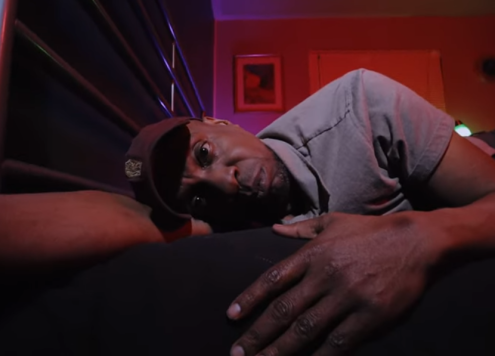
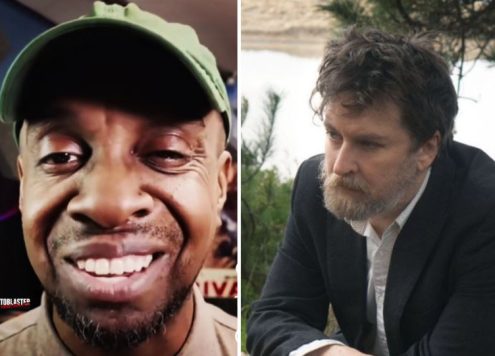
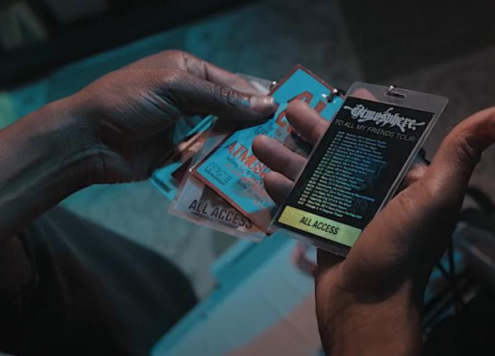
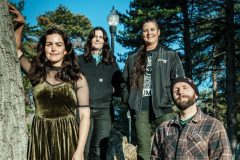
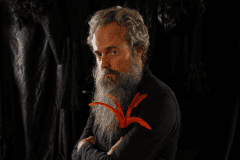
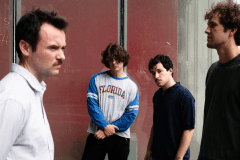
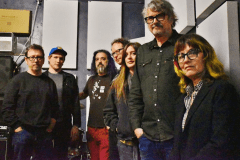

Social Media